Top 10 Magento Website Design Agencies (2026)
Discover Magento website design agencies that create custom ecommerce solutions, optimize performance, and enhance user experience.

Pick your team wisely. A magento website design agency shapes how your product looks and feels. For early‑stage founders and product leaders, the stakes are high. By April 2025 mobile devices drove almost 60% of web traffic worldwide and more than 70% of e‑commerce traffic. If your site is slow, nearly half of visitors will walk away.
This article introduces ten agencies and explains how we selected them—magento expertise, UX skill, responsiveness, CMS and SEO know‑how. You’ll also get advice on matching a partner to your priorities.
Which are the top Magento agencies to consider?
1. Parallel – agile design meets Magento know‑how
Parallel is our own studio where we partner with early‑stage teams to build thoughtful products quickly. Our work blends brand identity, UX and strategy. We run rapid discovery sprints to uncover the right product. We craft AI‑enhanced experiences, design marketing sites and develop custom themes. Because many of our clients build AI and SaaS products, we know how to design for complexity without adding clutter.
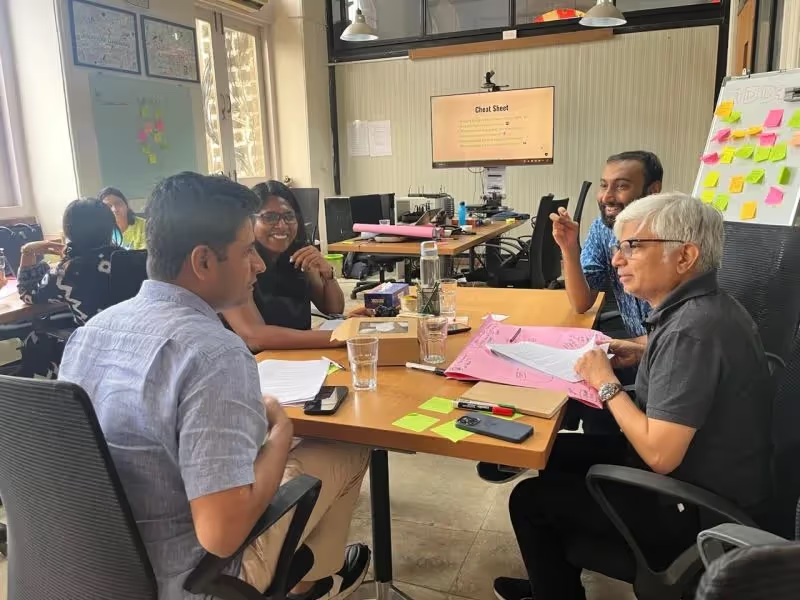
Strengths:
- Product thinking first: We approach every engagement as product builders. During discovery we map user journeys, prioritise features and uncover friction points. This makes the design more than a skin—design becomes part of the business plan.
- UX‑led approach: Our designers craft flows that reduce friction, using research and data. We benchmark against mobile usage because more than 64% of all website traffic came from mobile devices in 2025, and 96.3% of internet users access the web via mobile.
- Rapid iteration: Through design sprints we deliver interactive prototypes in days, letting teams validate ideas and adjust quickly.
- AI experience design: We explore conversational interfaces, generative AI and adaptive UIs to help startups build differentiated products.
Parallel suits founders who want a design partner to think with them, not just build to spec. Our processes help you make better decisions and gain speed. With engineering partners we deliver full Magento implementations, but our core value lies in product strategy and UX excellence.
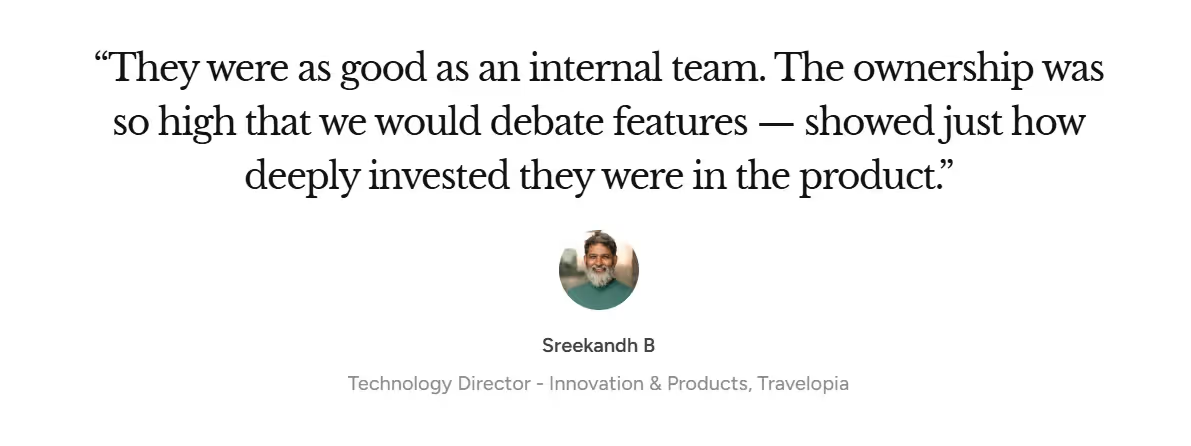
As a magento website design agency, Parallel blends strategic product thinking with technical delivery. We don’t just skin a template—we help you define what to build, then design and develop it with care.
2. Mageplaza – budget‑friendly extensions and custom builds
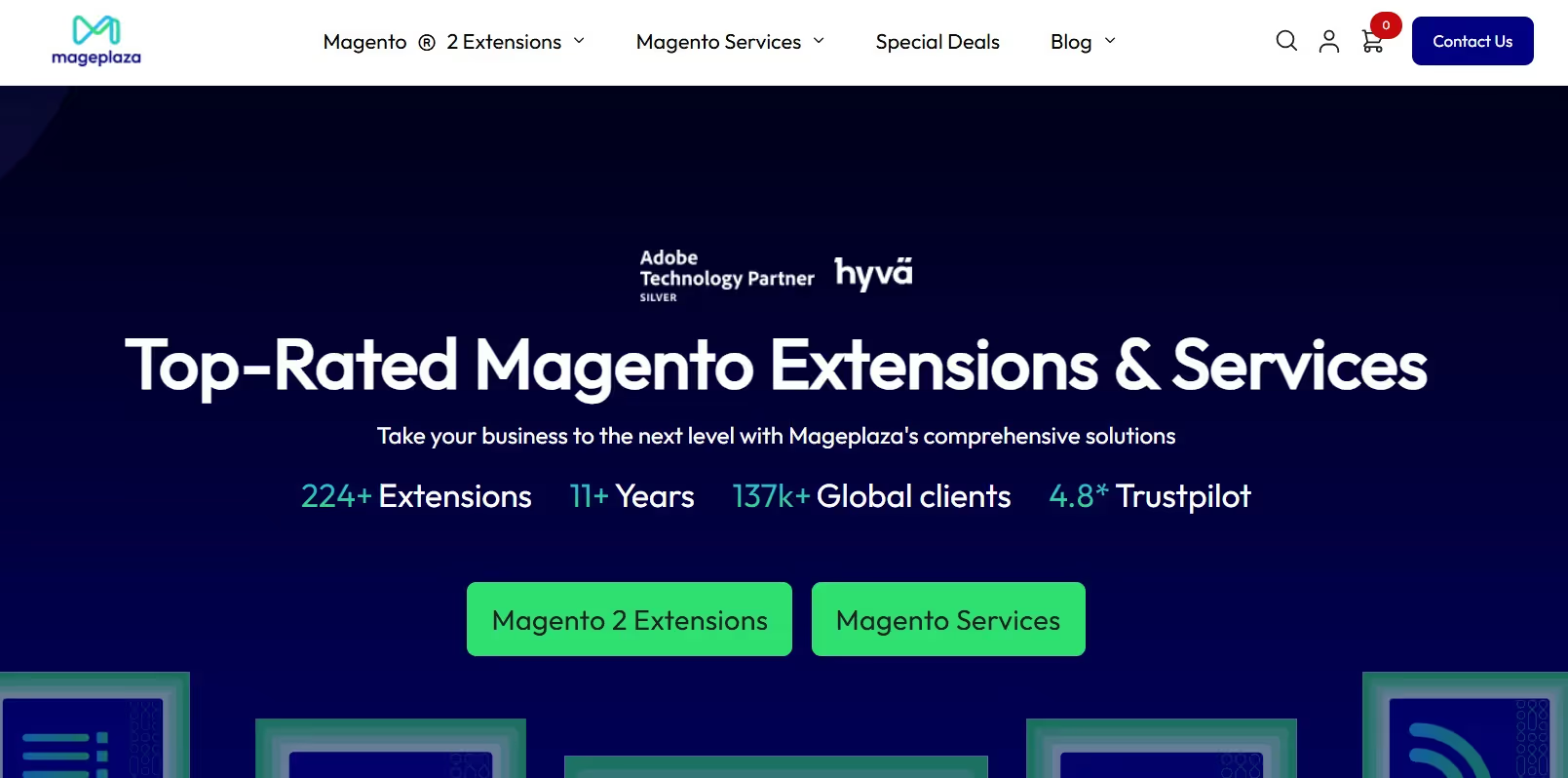
Mageplaza focuses solely on Magento. They offer hundreds of extensions, from payment gateways to SEO tools. Their team builds custom themes and modules, maintains stores and provides Hyvä front‑end implementation. For startups on a budget that need a functional store quickly, Mageplaza’s pre‑built components can reduce time and cost. They also provide ongoing maintenance packages and support for security patches.
This magento website design agency is a good fit when you want cost‑effective tools and extensions rather than bespoke design work. Their library of plug‑ins can cover common needs without reinventing the wheel.
Strengths:
- Large library of extensions (224+) covering shipping, payments, marketing and analytics.
- Competent in Hyvä themes, which deliver fast load times and better performance. A responsive site matters; companies investing in mobile‑friendly design see large improvements in conversions.
- Dedicated support team and reasonable pricing.
3. Elogic Commerce – balanced UX and back‑end plumbing
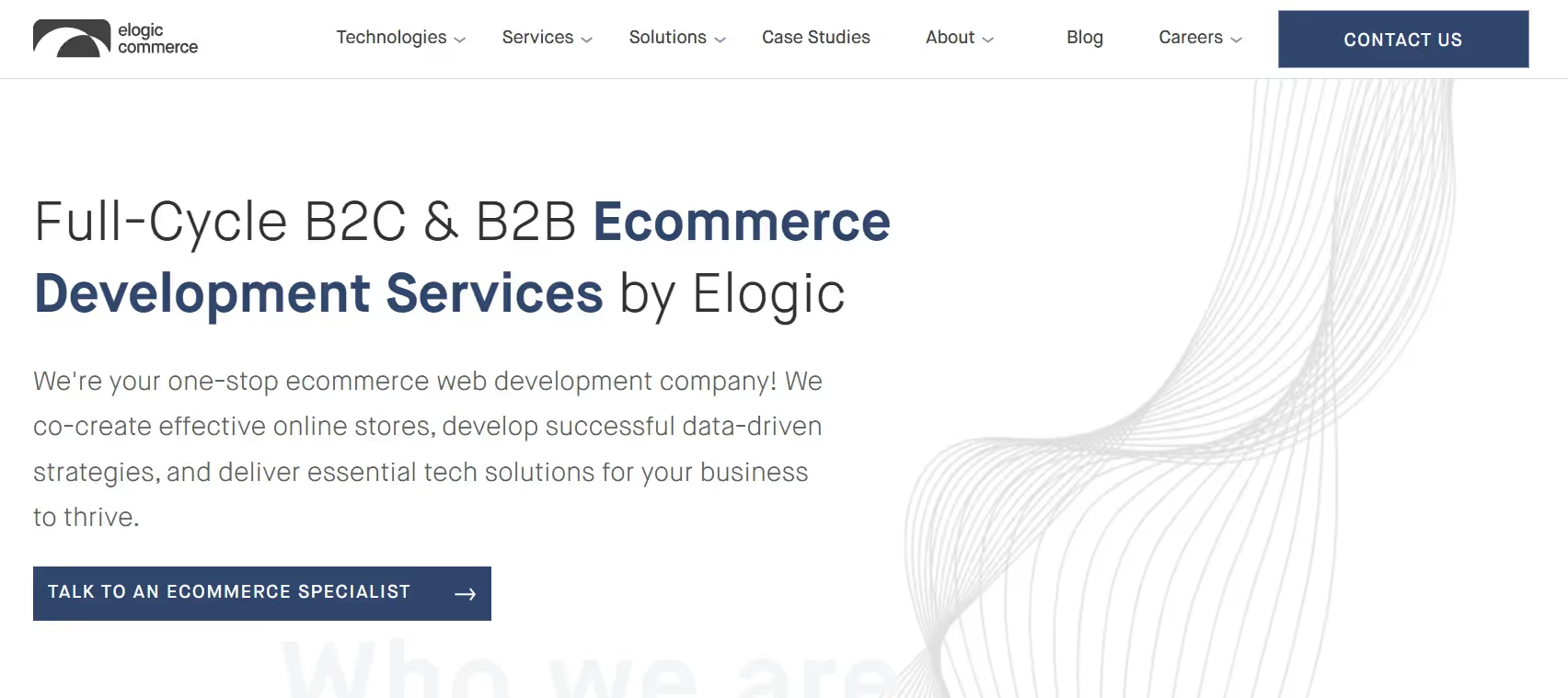
Elogic Commerce is headquartered in Estonia but works globally. They specialise in designing themes and optimising performance. They integrate Magento with ERP/CRM systems and customise modules. Their balanced approach suits startups that need both strong UX and complex integrations. Elogic runs audits for code quality and scalability and can advise on infrastructure and caching.
Strengths:
- Deep expertise in performance optimization.
- Experience with ERP, CRM and PIM integrations.
- Ability to work alongside in‑house teams to fill technical gaps.
4. Rave Digital – boutique service with strong SEO and communication
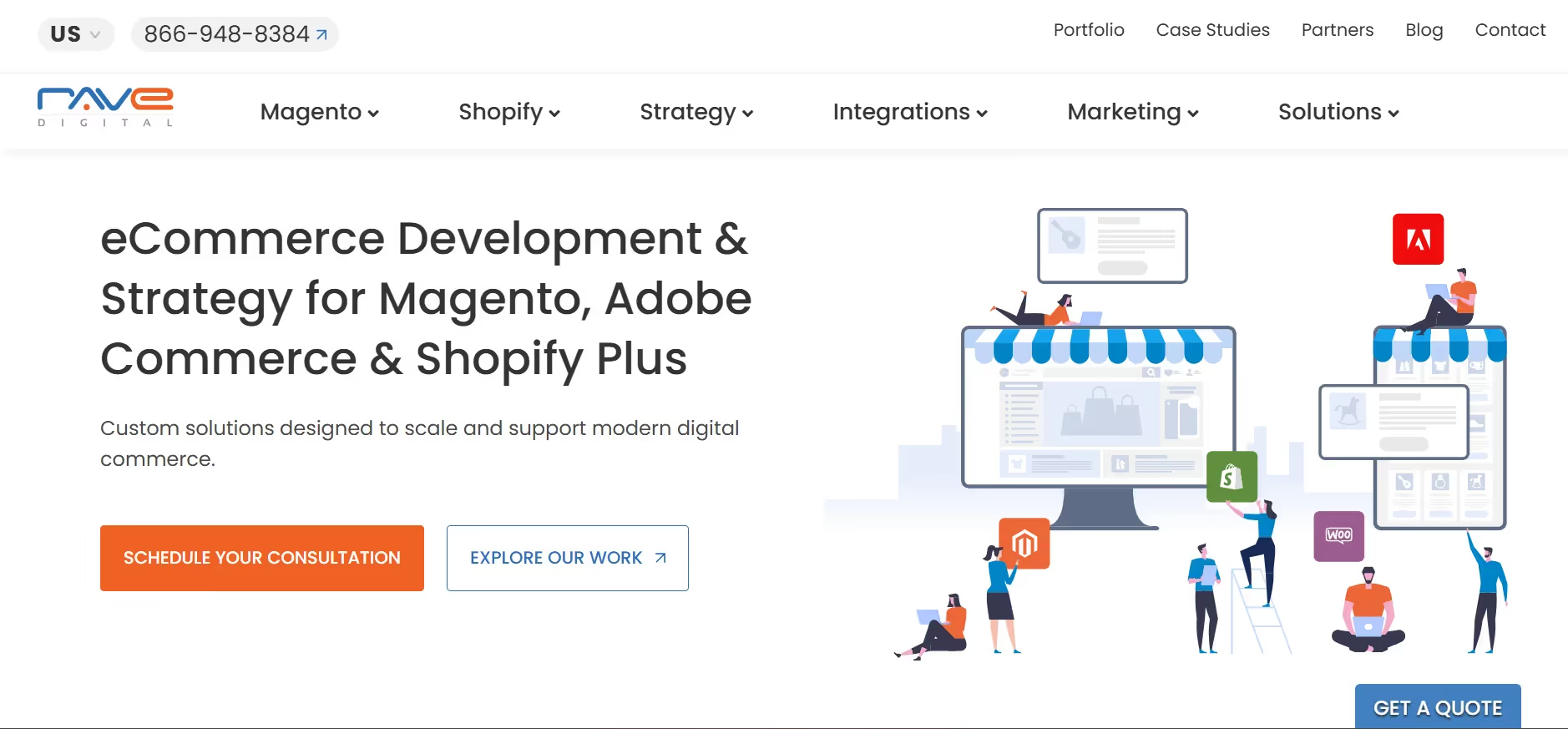
Based in the US, Rave Digital offers custom theme design, UX enhancements, performance tuning and marketing services. Their team emphasises communication and transparency. They integrate SEO from the start, which is important because search and mobile go hand in hand; more than half of global searches happen on mobile.
Strengths:
- Good balance of design and engineering.
- Solid SEO and content strategy services.
- Highly responsive account management.
5. Digital Silk – storytelling and brand experience
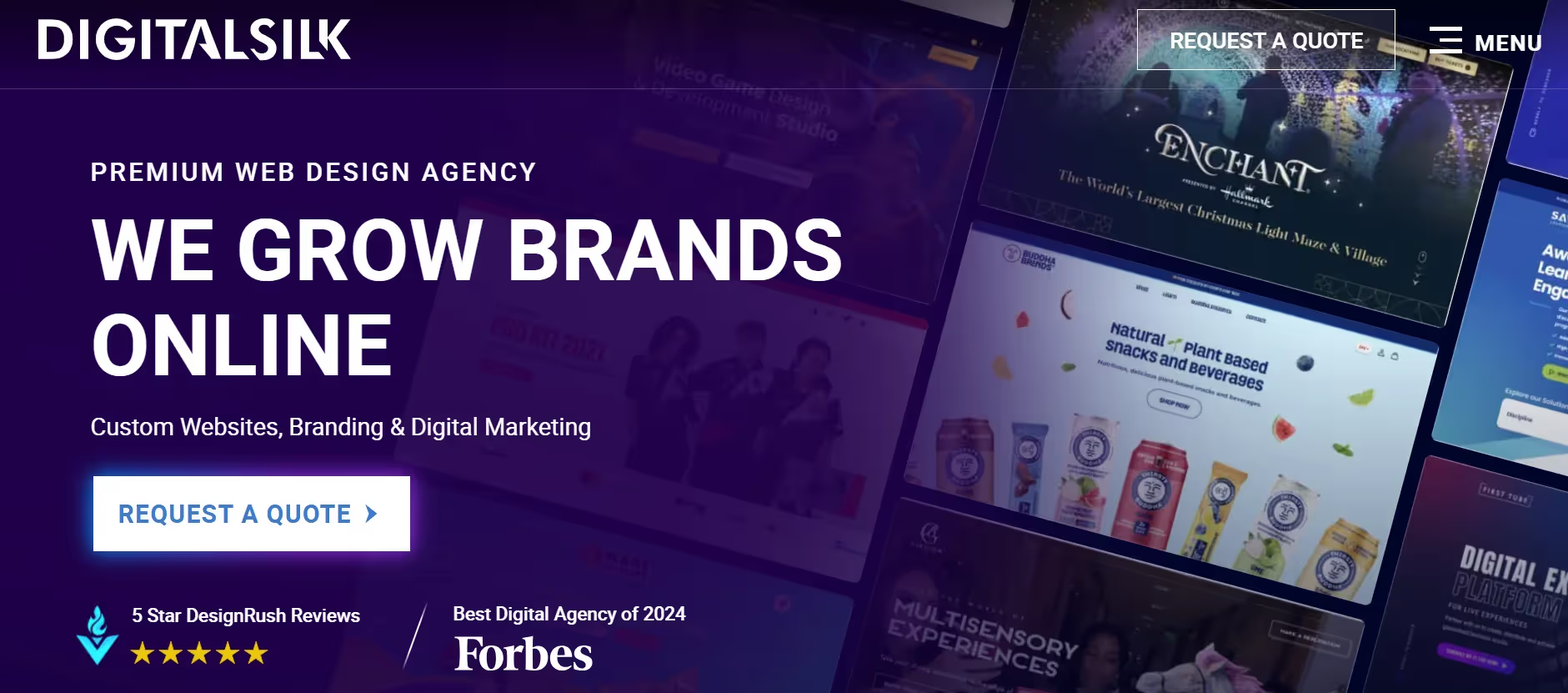
Digital Silk is a global agency known for visually striking, narrative‑driven sites. They start with brand discovery and craft a story arc for your product. Their designers understand conversion but prioritise emotional resonance. They implement custom Magento themes, interactive animations and media‑rich pages that keep visitors engaged. For consumer brands that rely on lifestyle and story, Digital Silk can create a distinct look and feel.
Strengths:
- Strong branding and narrative craft.
- Conversion‑focused design with clear calls to action.
- Full‑service digital marketing including strategy, content and advertising.
6. Atwix – core contributors and technical depth
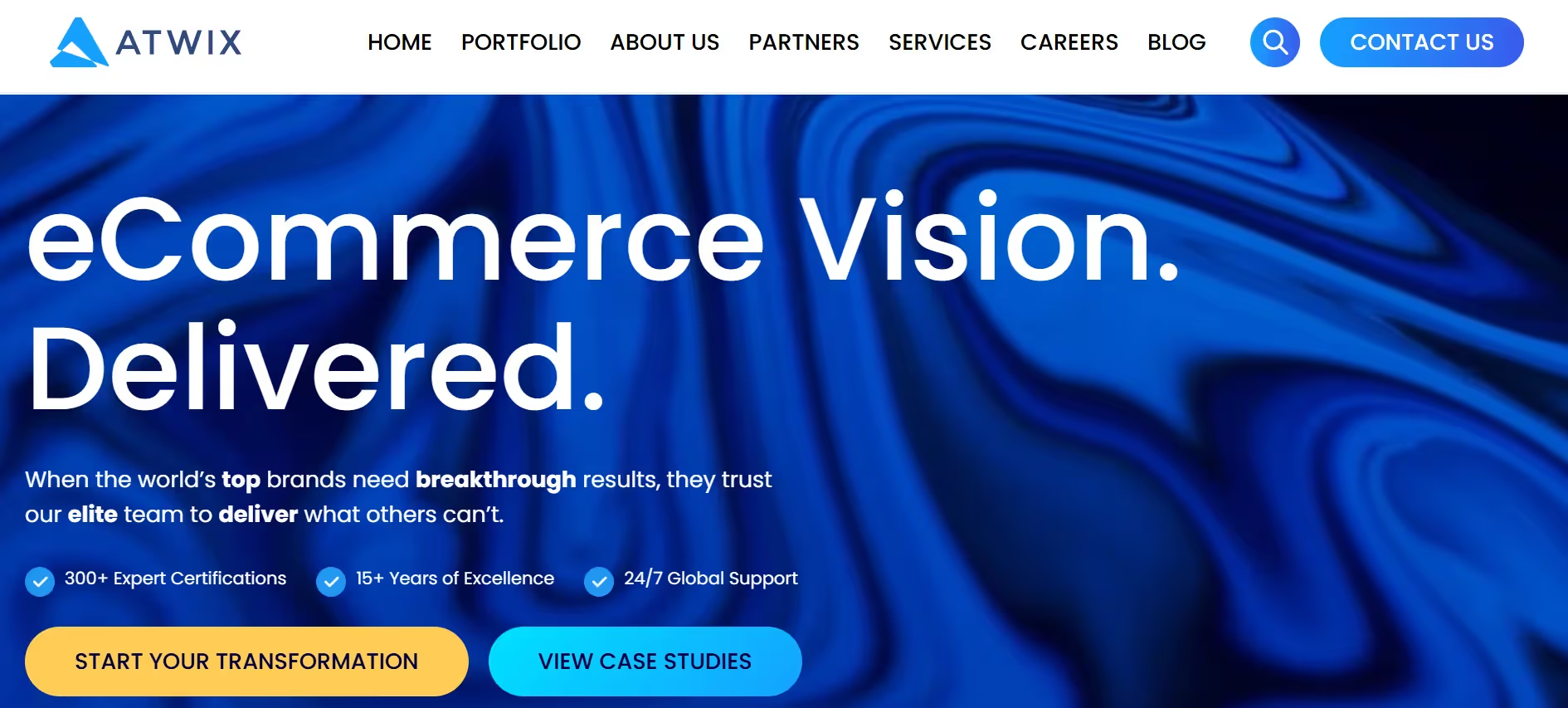
Atwix is widely respected in the Magento community. Their developers contribute to the core codebase and maintain open‑source modules. They have deep knowledge of front‑end technologies like Hyvä and PWA Studio. If your store requires heavy customisation, integration with enterprise systems or complex performance optimisation, Atwix will likely have an answer.
For startups that need a highly skilled magento website design agency to tackle complex builds, Atwix delivers. They’re particularly suited to teams that want bleeding‑edge features, cutting‑edge performance and integrations with other systems.
Strengths:
- Unmatched technical expertise and contribution to Magento code.
- Mastery of Hyvä theme (a modern, lightweight front end) and PWA.
- Strong code quality, security and performance auditing.
7. Vaimo – enterprise focus with AI personalisation
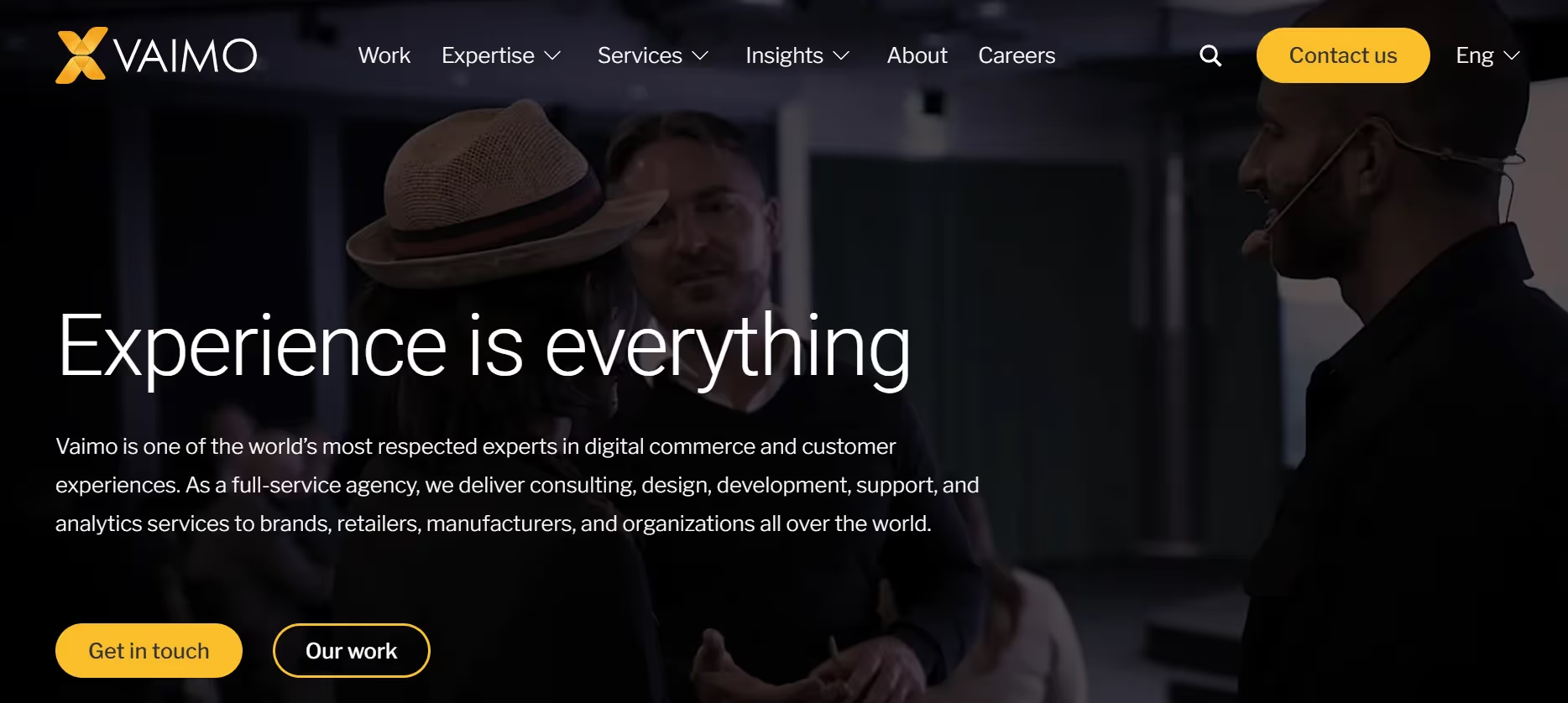
Vaimo is an international agency with offices across Europe, Africa and Asia. They excel at enterprise‑grade builds, combining Magento with AI‑driven personalisation, analytics and digital strategy. Their data scientists and UX researchers help identify high‑value customer segments and design personalised experiences. This is useful for startups aiming at enterprise clients or planning to scale quickly. Vaimo also offers managed hosting and support.
Strengths:
- Data‑driven UX research and analytics.
- AI personalisation and recommendation engines.
- Strong project management and global delivery.
8. Williams Commerce – analytics‑driven story and marketing automation
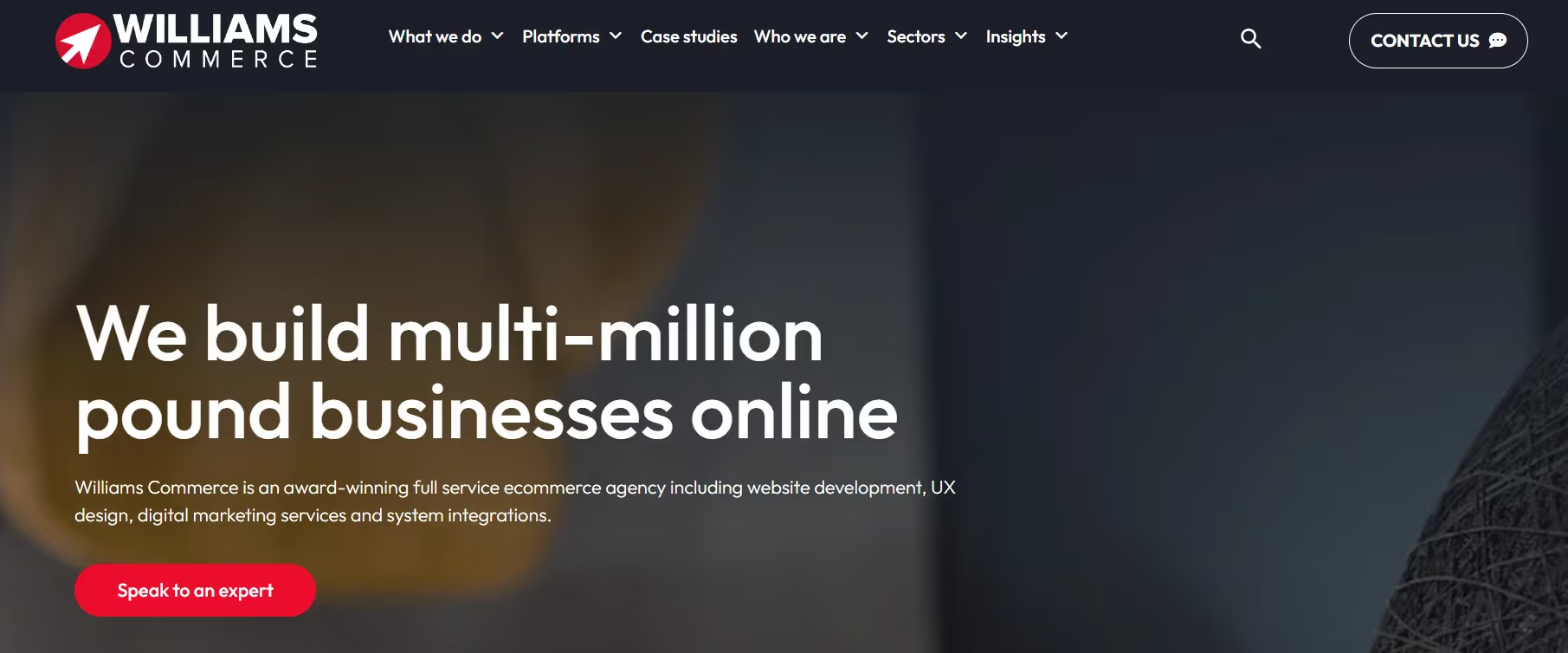
Williams Commerce, based in the UK, serves medium to large businesses across Europe. They combine analytics, story‑telling and marketing automation. Their team uses data to design intuitive flows and create targeted campaigns. They implement Magento with integrated marketing tools like HubSpot, Dotdigital and Salesforce. For startups that need both commerce and marketing systems, Williams Commerce can simplify the technology stack.
Strengths:
- Analytics and user research inform design.
- Marketing automation and integration expertise.
- Experience in B2B and B2C commerce architectures.
9. Brainvire Infotech – full‑stack value for mid‑market
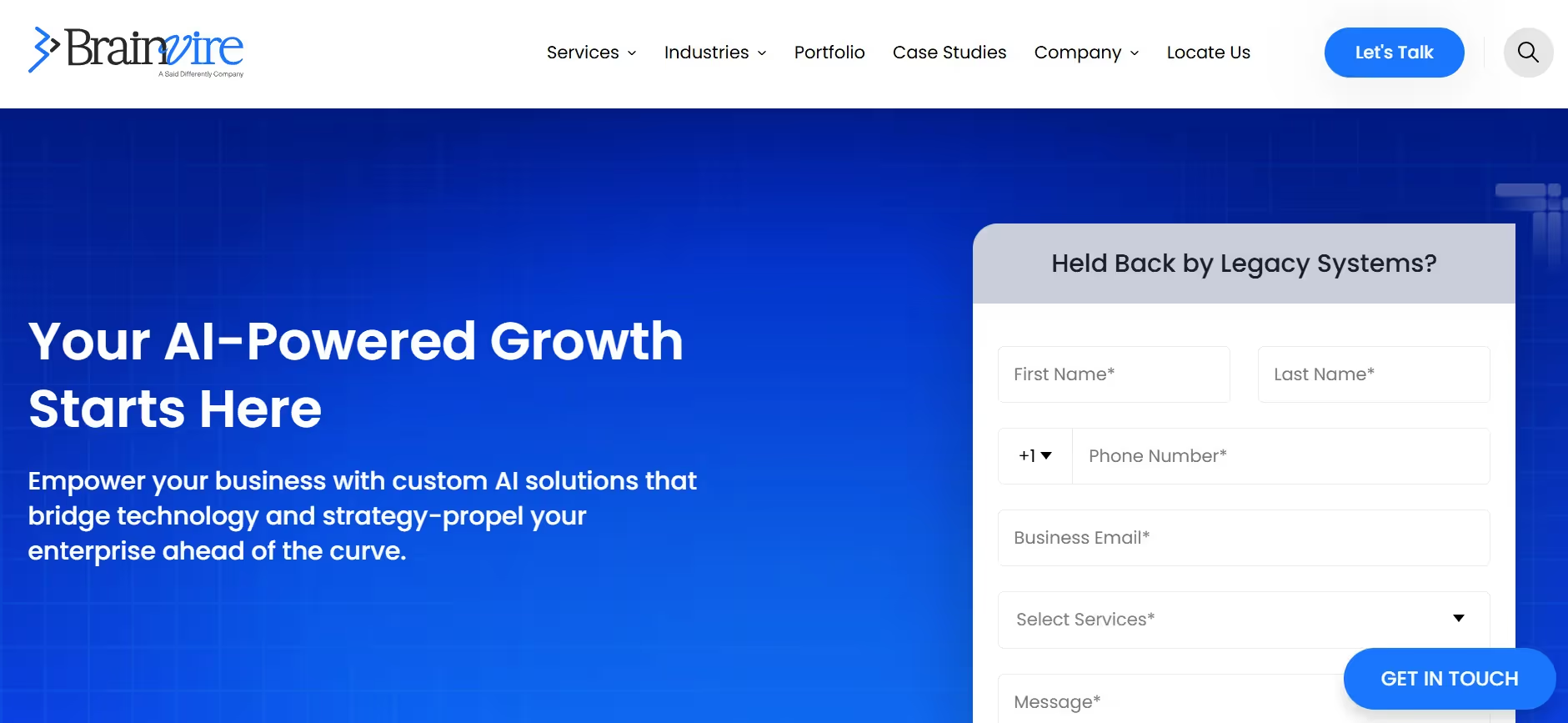
Brainvire has offices in the US and India and focuses on mid‑market customers. They offer end‑to‑end services, from UX design to custom module development. Their pricing is competitive, and they specialise in extension development. For startups with limited budgets that still need custom work, Brainvire can balance cost and depth. They also provide SEO services and performance tuning.
Strengths:
- Full‑stack Magento design and development.
- Extension development to meet unique requirements.
- Competitive rates and flexible engagement models.
10. Ziffity Solutions – offshore capability and certified expertise

Ziffity is another India‑based agency with offshore pricing and a certified team. They offer UX design, custom theming, migrations and performance optimisation. They have experience integrating Magento with ERP and CRM systems. For startups wanting to keep costs lower without sacrificing technical expertise, Ziffity offers a solid option.
This magento website design agency offers offshore affordability without cutting corners on certification. They’re ideal for teams that need experienced developers at lower hourly rates.
Strengths:
- Certified Magento developers and designers.
- Experience with migrations (e.g., Magento 1 to 2) and upgrades.
- Performance optimization and security enhancements.
How can you choose the right Magento agency for your startup?
Finding a magento website design agency is not just about checking portfolios. It’s about aligning your business goals with their strengths. Here are questions to ask when evaluating partners:
- Define your priorities. Are you looking for custom UX design, faster mobile performance, specific integrations, or a scalable architecture? Knowing what matters most will narrow your search. Mobile matters: by 2025, nearly two‑thirds of web traffic came from mobile devices and 96% of internet users accessed the internet via mobile. Your partner must treat mobile as the starting point.
- Ask for case studies. A good agency should demonstrate how their work improved conversions or time‑to‑value. In one example, Offspring, a UK retailer, switched to a responsive design and saw a 19% increase in smartphone/tablet conversion rate and a 58% increase in mobile/tablet revenue within three months. A partner should provide similar evidence.
- Check for certifications and community involvement. Agencies like Atwix contribute to Magento’s core and have certified developers. Certifications show commitment to quality and staying current.
- Understand their project management. How do they communicate? What tools do they use? Clear communication prevents delays and confusion, especially if you operate across time zones.
- Consider post‑launch support. Security and maintenance are ongoing needs. A recent report found that 40% of users will abandon a website after a bad mobile experience, so continuous performance tuning matters. Ask whether the agency offers regular updates, emergency support and security audits.
- Evaluate budget versus value. Cheaper does not always mean better, and the most expensive option may not fit a young startup. Balance cost with the agency’s ability to deliver meaningful outcomes.
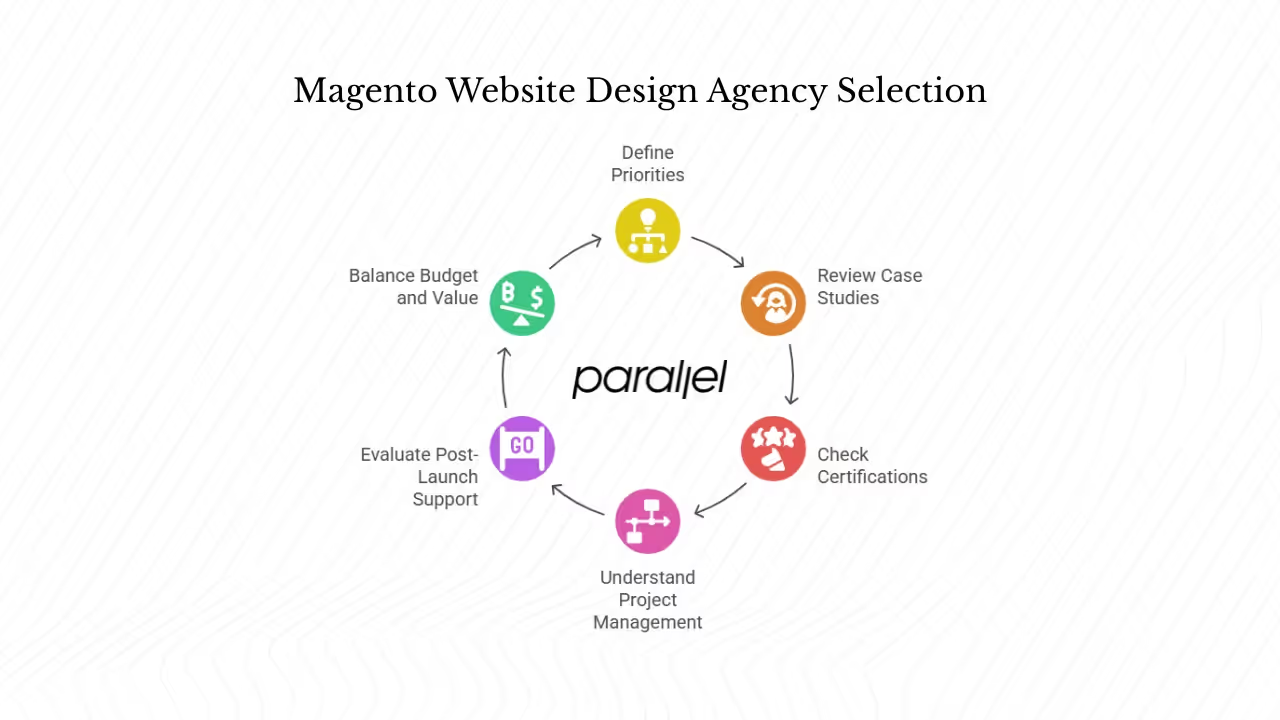
Why could Parallel be the right choice for design-led startups?
Our experience suggests that early‑stage teams benefit from a partner who understands product, design and technology holistically. Here’s why Parallel stands out:
- Design sprints to accelerate learning. We run structured workshops that align teams, uncover user pain points and prioritise features. This reduces risk and speeds up decisions.
- Mobile‑first UX. Because more than 64% of web traffic now comes from mobile devices, we start every project with mobile in mind. We test prototypes on real devices, measure load times and refine interactions.
- AI and emerging tech. Many startups today are exploring AI‑powered products. Our designers and engineers have built chat interfaces, recommendation systems and data dashboards. We integrate these into Magento when it adds value.
- Transparent partnership. We co‑create with clients, share our reasoning and welcome feedback. We provide access to Figma files, design systems and roadmaps so that you can track progress and adapt quickly.
Parallel isn’t the only option. For startups that need heavy technical architecture or pre‑built modules, agencies like Atwix or Mageplaza might be better fits. But for those who prioritise user experience, rapid iteration and a strategic partner who guides decisions, Parallel offers a unique approach.
What bigger picture should startups keep in mind when choosing an agency?
Choosing a magento website design agency is a strategic decision that will shape your product for years. The data is clear: mobile‑first experiences are no longer optional. Mobile devices generated nearly 60% of global web traffic in April 2025 and over 70% of e‑commerce traffic. If your site isn’t responsive, 80% of users will abandon it. The right agency must understand these facts and design accordingly.
Parallel shines for design‑led startups that value discovery, UX craft and AI‑driven experiences. For deeper technical customisation, agencies like Atwix and Mageplaza offer robust code and modules. Rave Digital and Williams Commerce provide marketing and SEO depth. Vaimo brings enterprise‑level strategy and data science. Brainvire and Ziffity offer cost‑effective development with solid technical skills. Pick the agency whose strengths align with your mission rather than chasing a top ranking.
FAQ
1) What’s the difference between Magento development and Magento design?
Development covers architecture, coding, integrations and performance tuning. It involves creating modules, connecting systems and ensuring security. Design covers UX, visual style, interaction patterns and branding. Both are essential. A beautiful site is meaningless without stable code; a robust platform can fail if the interface is confusing or slow. For example, after Walmart Canada redesigned its mobile site, conversions rose by 20% and mobile orders increased by 98%.
2) Should I pick a design‑first agency or a Magento specialist?
It depends on your stage and goals. Early‑stage teams often benefit from design‑first partners like Parallel that can uncover user needs and iterate rapidly. Once you have a proven model and need to scale, a Magento specialist like Atwix or Mageplaza may be better for complex integrations and custom modules. The best approach is often sequential: start with user research and UX design, then build on a strong technical foundation.
3) How quickly can a Magento store be launched?
Timelines vary. A basic store using existing themes and standard integrations may take 8–12 weeks. Custom themes, multiple languages, ERP or CRM integration and bespoke features add time. A full‑scale store with custom UX and deep integrations can take 16–24 weeks. Discovery and design phases often overlap with early development to speed up delivery.
4) What is the Hyvä theme and why does it matter?
Hyvä is a modern front‑end framework for Magento that replaces the default Luma theme. It uses clean architecture and minimal dependencies to deliver faster load times and simpler customization. Sites built with Hyvä feel snappy on mobile and are easier to maintain. Agencies like Mageplaza and Atwix specialise in Hyvä implementations because it addresses the performance issues of older themes and improves UX on mobile, which is crucial when mobile accounts for nearly two‑thirds of web traffic.


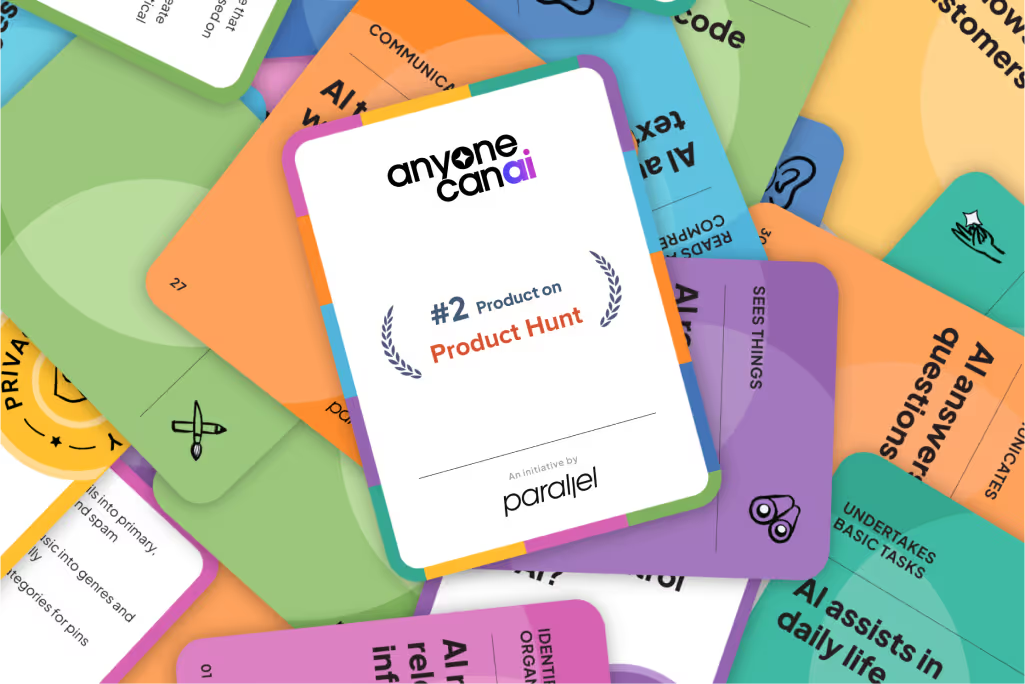
.avif)









